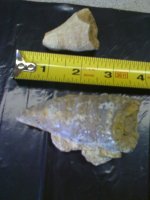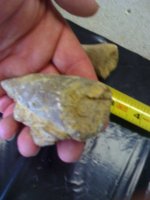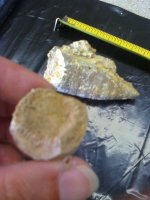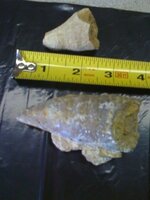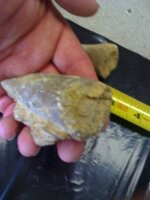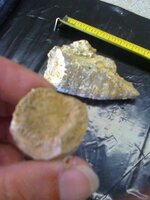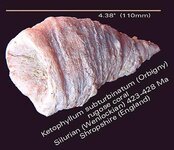flip flop
Sr. Member
First off - I am a contractor, NOT a fossil guy.
I'm building a new home in Southwest Ohio. During excavation I noticed tons of small fossils. Sea shells, fish looking things, almost like there was an ancient ocean there. I noticed these 2 objects and picked them up. They look like maybe dolphin or orca teeth??
Any help would be appreciated.
Thanks, Flip Flop
I'm building a new home in Southwest Ohio. During excavation I noticed tons of small fossils. Sea shells, fish looking things, almost like there was an ancient ocean there. I noticed these 2 objects and picked them up. They look like maybe dolphin or orca teeth??
Any help would be appreciated.
Thanks, Flip Flop


